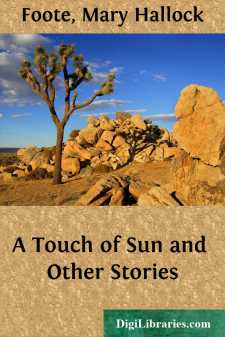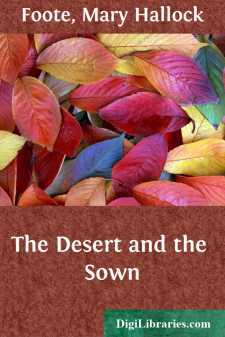Categories
- Antiques & Collectibles 13
- Architecture 36
- Art 48
- Bibles 22
- Biography & Autobiography 813
- Body, Mind & Spirit 142
- Business & Economics 28
- Children's Books 15
- Children's Fiction 12
- Computers 4
- Cooking 94
- Crafts & Hobbies 4
- Drama 346
- Education 46
- Family & Relationships 57
- Fiction 11828
- Games 19
- Gardening 17
- Health & Fitness 34
- History 1377
- House & Home 1
- Humor 147
- Juvenile Fiction 1873
- Juvenile Nonfiction 202
- Language Arts & Disciplines 88
- Law 16
- Literary Collections 686
- Literary Criticism 179
- Mathematics 13
- Medical 41
- Music 40
- Nature 179
- Non-Classifiable 1768
- Performing Arts 7
- Periodicals 1453
- Philosophy 64
- Photography 2
- Poetry 896
- Political Science 203
- Psychology 42
- Reference 154
- Religion 513
- Science 126
- Self-Help 84
- Social Science 81
- Sports & Recreation 34
- Study Aids 3
- Technology & Engineering 59
- Transportation 23
- Travel 463
- True Crime 29
In Exile and Other Stories
Description:
Excerpt
IN EXILE
I.
Nicky Dyer and the schoolmistress sat upon the slope of a hill, one of a low range overlooking an arid Californian valley. These sunburnt slopes were traversed by many narrow footpaths, descending, ascending, winding among the tangle of poison-oak and wild-rose bushes, leading from the miners' cabins to the shaft-houses and tunnels of the mine which gave to the hills their only importance. Nicky was a stout Cornish lad of thirteen, with large light eyes that seemed mildly to protest against the sportive relation which a broad, freckled, turned-up nose bore to the rest of his countenance; he was doing nothing in particular, and did it as if he were used to it. The schoolmistress sat with her skirts tucked round her ankles, the heels of her stout little boots driven well into the dry, gritty soil. There was in her attitude the tension of some slight habitual strain—perhaps of endurance—as she leaned forward, her arms stretched straight before her, with her delicate fingers interlocked. Whatever may be the type of Californian young womanhood, it was not her type; you felt, looking at her cool, clear tints and slight, straight outlines, that she had winter in her blood.
She was gazing down into the valley, as one looks at a landscape who has not yet mastered all its changes of expression; its details were blurred in the hot, dusty glare; the mountains opposite had faded to a flat outline against the indomitable sky. A light wind blew up the slope, flickering the pale leaves of a manzanita, whose burnished, cinnamon-colored stems glowed in the sun. As the breeze strengthened, the young girl stood up, lifting her arms, to welcome its coolness on her bare wrists.
"Nicky, why do the trees in that hollow between the hills look so green?"
"There'll be water over there, miss; that's the Chilano's spring. I'm thinkin' the old cow might 'a' strayed over that way somewheres; they mostly goes for the water, wherever it is."
"Is it running water, Nicky,—not water in a tank?"
"Why, no, miss; it cooms right out o' the rock as pretty as iver you saw! I often goes there myself for a drink, cos it tastes sort o' different, coomin' out o' the ground like. We wos used to that kind o' water at 'ome."
"Let us go, Nicky," said the girl. "I should like to taste that water, too.
Do we cross the hill first, or is there a shorter way?"
"Over the 'ill's the shortest, miss. It's a bit of a ways, but you've been longer ways nor they for less at th' end on't."
They "tacked" down the steepest part of the hill, and waded through a shady hollow, where ferns grew rank and tall,—crisp, faded ferns, with an aromatic odor which escaped by the friction of their garments, like the perfume of warmed amber. They reached at length the green trees, a clump of young cottonwoods at the entrance to a narrow cañon, and followed the dry bed of a stream for some distance, until water began to show among the stones. The principal outlet of the spring was on a small plantation at the head of the cañon, rented of the "company" by a Chilian, or "the Chilano," as he was called; he was not at all a pastoral-looking personage, but, with the aid of his good water, he earned a moderately respectable living by supplying the neighboring cabins and the miners' boarding-house with green vegetables....




